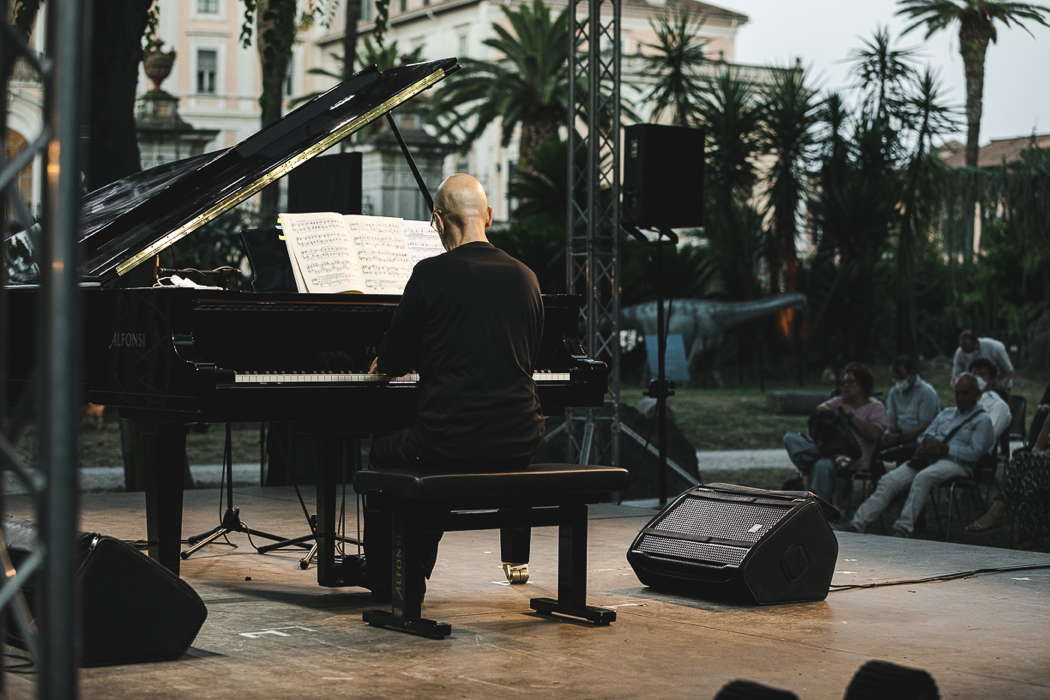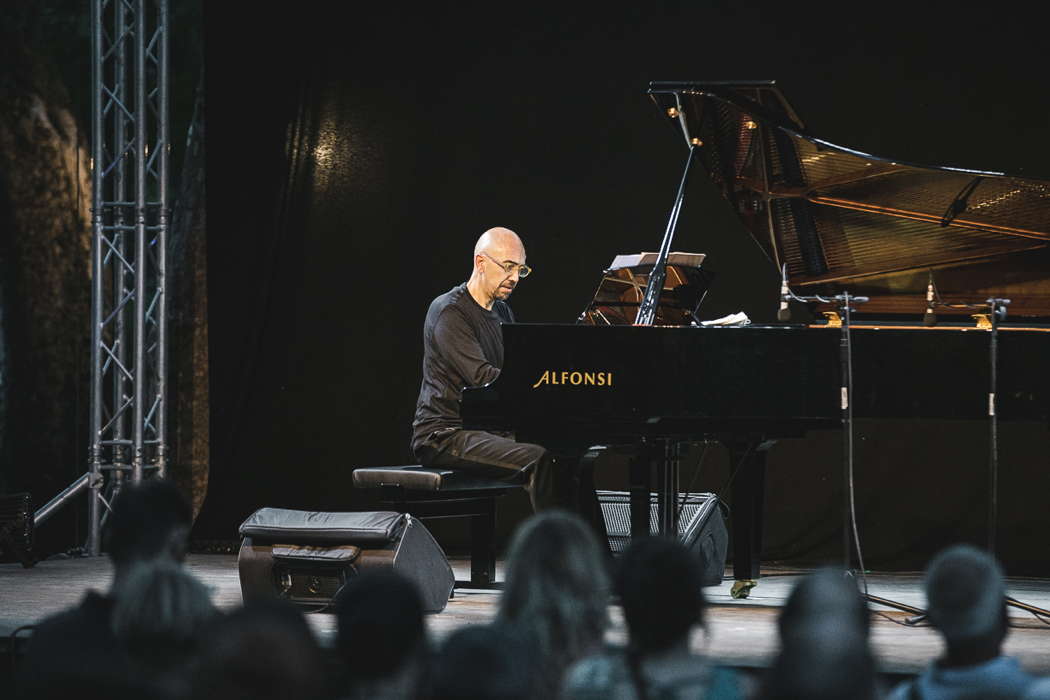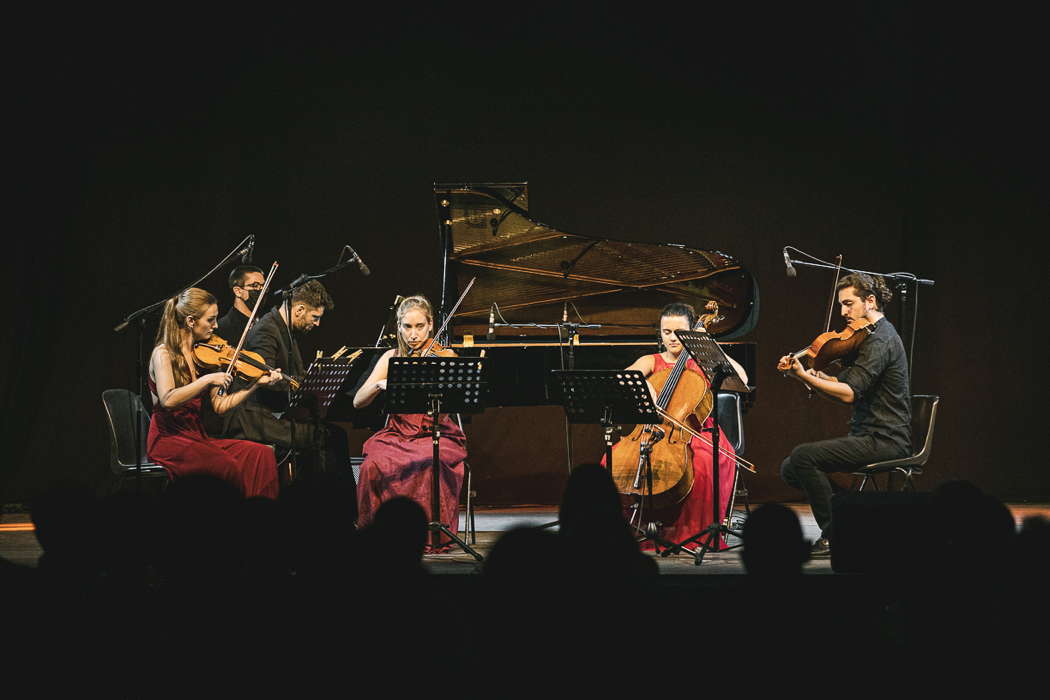 DISCUSSION: What is a work? John Dante Prevedini leads a discussion about The performing artist as co-creator, including contributions from Halida Dinova, Yekaterina Lebedeva, Béla Hartmann, David Arditti and Stephen Francis Vasta.
DISCUSSION: What is a work? John Dante Prevedini leads a discussion about The performing artist as co-creator, including contributions from Halida Dinova, Yekaterina Lebedeva, Béla Hartmann, David Arditti and Stephen Francis Vasta.
The Scent of Rome
GIUSEPPE PENNISI listens to two concerts on the same evening in Italy's capital city
Those who have seen Rouben Mamuolian's film Queen Cristina dated 1934 - often on television platforms - will still remember the last shot: the dreamy eyes of Greta Garbo in the vessel that took her from Sweden (where she had abdicated) to Rome. In the papal city, as it is known, Queen Cristina was one of the patrons of the arts, especially music. The gardens of what was her Roman Palace are now the Botanical Garden of the Capital of Italy.
It was a great idea of the University Institution of Concerts (IUC) of the University of Rome La Sapienza to organize a short concert season in the Botanical Garden: from 18 June until 27 July 2021: an appointment of jazz and seven of chamber music, with two concerts per evening, one at 20:30 and one at 21:30. With the audience in one of the corners of the Botanical Garden, one can smell the scent of Rome and admire on the one hand the splendor of Palazzo Corsini, home of the Accademia dei Lincei, and on the other, the lanes that climb the hill full of the rare plants of the Botanical Garden. This is an idea to be replicated and made known.

Francesco Prode playing at the Museo Orto Botanico di Roma. Photo © 2021 Andrea Caramelli
Your chroniqueur attended the two concerts on 23 July: the first; for solo piano and with an eclectic program; the second for a quintet and dedicated to Shostakovich. Each lasted about an hour with a short interval to stroll through the flowers and plants of the park. There was a full audience at both concerts.
Francesco Prode is the protagonist of the first concert. Professor at the Roman Conservatory of Santa Cecilia, he has dedicated himself to contemporary music, collaborating closely with Karlheinz Stockhausen and Luigi Nono. Of these and other composers he has christened various scores in Italy and abroad, including the world premiere of Steve Reich's City Life, which I will listen to on 27 July 2021 at the Chigiana International Festival and Summer Academy in Siena.
The program had as its central element sofferte onde serene (suffered serene waves) by Luigi Nono (dated 1976), framed between three Préludes of Claude Debussy - the tenth, fourth and sixth of the first book - and the six Bagatelles of Beethoven. So, a piece for piano and magnetic tape of the 'historical twentieth century' between short pieces respectively of the last century and of the early nineteenth century, but almost eighteenth-century as they do not touch the then nascent Romanticism.

Francesco Prode playing at the Museo Orto Botanico di Roma. Photo © 2021 Andrea Caramelli
A cunning choice: it points out the skill of Prode, known (as has been said) above all for his work in the contemporary and experimental, in a more usual repertoire of chamber music. The languid and sometimes melancholic Debussy of the Préludes prepares for the dramatic intensity of Nono and then leads the listener to the lightness of the six Bagatelles in which the alternation of moderate movements and rapid movements is in itself an element of lightness.
Sofferte onde serene is the result of the collaboration between Luigi Nono and pianist Maurizio Pollini. It is a highly dramatic piece, in which the composer's strong political commitment is felt too. Prode makes you feel even more drama and political commitment by inserting the short composition between the refined Préludes and the playful and ironic Bagatelle.
The second concert is of a completely different tenor. The quintet I Talenti di Avos Project is composed of Adriano Leonardo Scapicchi on piano, Sofia Bandini on violin, Maddalena Fogacci Celi on violin, Matteo Introna on viola and Lara Biancalana on cello. They are teachers of a specialization course, precisely the Avos Project.

I Talenti di Avos Project at the Museo Orto Botanico di Roma. Photo © 2021 Andrea Caramelli
The program included two pieces by Dmitry Shostakovich - the Five Pieces for Two Violins and Piano in the transcription by Lev Atomyan and The Quintet in G minor. They are, respectively, from 1970 - ie a few years before the composer's death - and 1940, at the beginning of the 'Great Patriotic War' (which will be the central element of the seventh symphonium entitled Stalingrad). Both in the first and even more in the second piece we are far from the experimentalism that had characterized the first phase of Shostakovich's activity. Between the two pieces there are thirty years of distance, but both are inspired by great clarity in which each element assumes a precise function within the context in which it is inserted. Great emphasis is placed on harmonic conduct. The Talents of Avos perfectly captured this aspect and showed an elegant, refined and graceful Shostakovich.
A great success.
Copyright © 26 July 2021
Giuseppe Pennisi,
Rome, Italy





